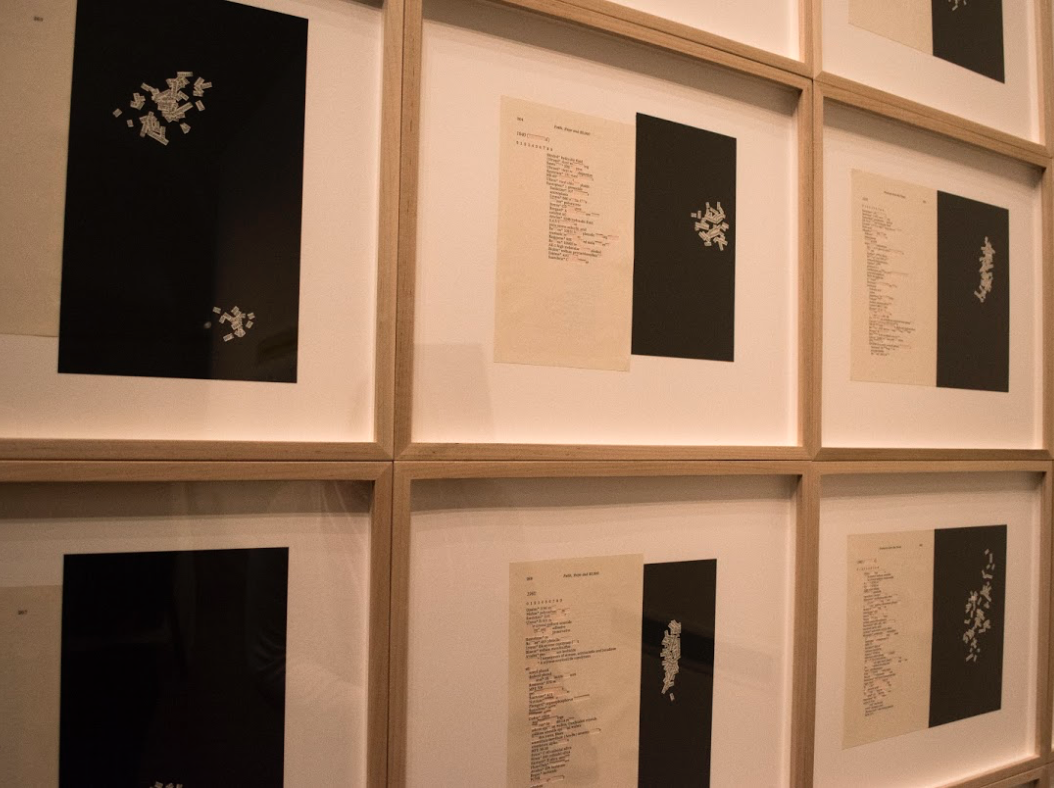Kristin Stolle has used art to highlight the environmental issues of genetically modified organisms (GMOs), created by a company called Monsanto. Stolle’s work, ‘Selective Memory’ has been on display in the Winthrop Galleries since December and will remain there until March 6.
Winthrop’s department of interdisciplinary studies wanted to continue and expand upon this subject. On Tuesday, Feb. 12 a panel discussion on the topic of GMOs was held with panelists Joshua McDonald, professor of human nutrition, Laura Ullrich, professor of economics, Cindy Tant, professor of biology and moderated by Marsha Bollinger, the interdisciplinary studies chair.
McDonald began by explaining that a big concern with genetically modified foods is the concern on how consuming different DNA through their diets can affect people. This is what initially lead Stolle to begin researching GMOs.
“When I started having problems eating soy, essentially problems with my menstrual cycle and my intestines, I [eliminated] stuff from my diet that I knew was genetically modified,” Stolle said in a previous interview with the Johnsonian. “So I was like ‘who’s genetically engineering these seeds like who’s doing this’ and so then that lead me down the path of Monsanto.”
Another concern McDonald expressed was about the lack of open information. There are many agencies and committees dedicated to inspecting GMOs put on the market. However, many of these regulations and what is actually being tested are not open to the public.
Ullrich explained that in order to avoid a monopoly, producers and consumers have to have equal information. Particular seed companies that produce and sell GMOs have a strong hold on the market. While conducting and publishing their own research on the topic, these companies create asymmetric information in the market.
“Consumers have to have all the information available to the public,” Ullrich said. “Research is so important, and specifically grants to fund real peer reviewed research and not corporate run.”
This idea of open information was key to Stolle’s exhibition.
“[What I want people to take away from this is] really ask the questions like ‘who’s telling the story?’ It’s really important to me [to not] always take things at face value [and to] have a critical eye when researching. So I think on top of that [it’s important to know] who’s telling the story,” Stolle said in a previous interview with the Johnsonian.
Bollinger echoed this sentiment in her closing remarks at the panel.
“Where you stand on something has to do with who is telling that story,” Bollinger said.
According to the panel, GMOs have positive potential under the right circumstances. McDonald believes that it could help solve the problems of a “rapidly growing population with and the loss of cultivable land.” GMOs are able to produce more vitamins and nutrients than regular crops, and are a potential solution to mass population vitamin deficiency. Tant cited how GMOs have already helped promote biodiversity and save endangered plant species. Ullrich sees the possibility of food prices going down on the global market and food production in underdeveloped areas increased.
Karen Derksen, director of Winthrop Galleries, believe students can benefit from the different perspectives of the gallery and panel.
“[‘Selective Memory’] is a way that this person who is creating their artwork is putting their story forward,” Derksen said. “So again what their research is, what they understand and what they believe is important about this issue. It’s just a different perspective and another narrative they can learn from.”
Bollinger believed the event exactly highlights the importance of interdisciplinary studies.
“So many issues in the world are not properly understood if you just understand one narrow perspective,” Bollinger said. “So if we take a look at many different perspectives and we study them, especially the big issues of the world like food shortages, we cannot solve that from just one perspective. We must take different perspectives and look at those disciplines and really make them intersect and work together.”
This event was a just taste of the larger interdisciplinary conference coming to Winthrop. The “The World of Food: Interdisciplinary Perspectives on What We Eat and Grow” is a Winthrop’s 2nd interdisciplinary concert. It will take place this weekend, from Thursday Feb. 21 through Saturday Feb. 23. Events will combine multiple different disciplines and bring multiple guest speakers and performers on campus. More information can be found at winthrop.edu/interdiciplinary.




